India's Crypto Tax: The Hidden Costs and How to Manage Them
The Indian government has established a clear framework for the taxation of Virtual Digital Assets (VDAs) under the Finance Act 2022. This comprehensive guide covers the flat 30% tax on VDA gains, the 1% TDS on transactions, strict rules regarding loss set-off and carry forward, and other taxable scenarios like mining, staking, and gifts. It also provides a step-by-step approach to filing crypto taxes in India, emphasizing the importance of detailed record-keeping and professional assistance to ensure compliance and avoid penalties.
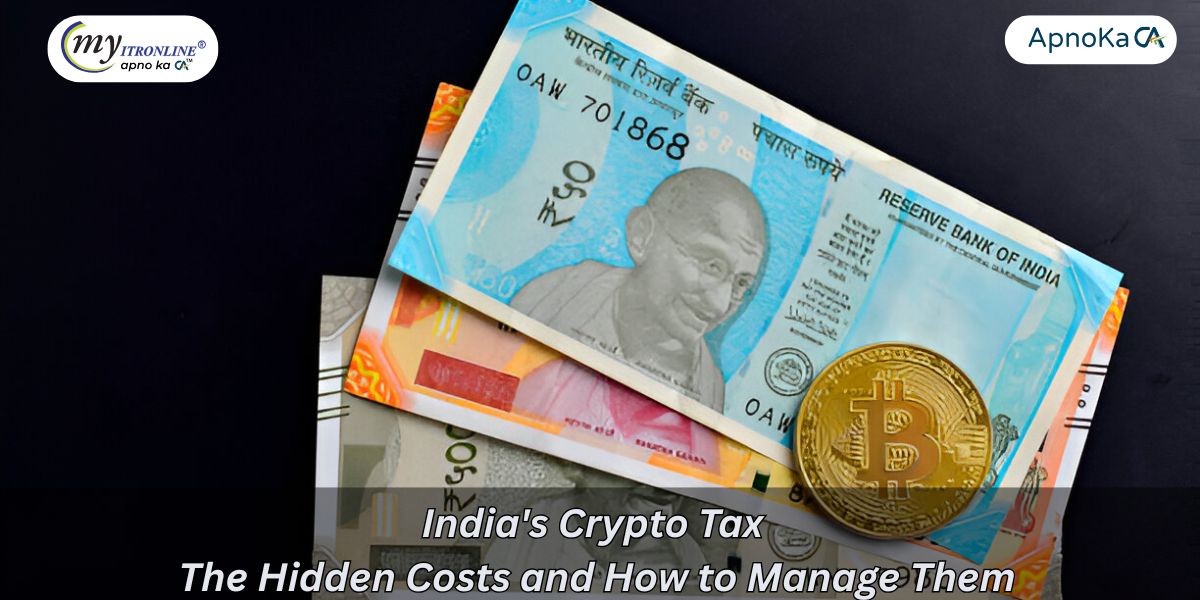
The cryptocurrency landscape has seen tremendous growth, and India is no different. As more individuals engage in the digital asset space, it becomes essential to grasp the tax consequences. The Indian government, via the Finance Act 2022, has established a definitive structure for the taxation of Virtual Digital Assets (VDAs), which include cryptocurrencies and NFTs. This comprehensive guide will outline everything you need to understand to remain compliant.
What are Virtual Digital Assets (VDAs) in India?
The Income Tax Act of 1961, particularly Section 2(47A), provides a broad definition of "Virtual Digital Assets" (VDAs). This definition includes:
- Any information, code, number, or token generated through cryptographic methods or otherwise.
- Assets that can be electronically moved, stored, or traded.
- Assets that offer a digital representation of value, exchanged with or without consideration, with an inherent promise of value, or serve as a store of value or a unit of account.
- This definition clearly includes cryptocurrencies, Non-Fungible Tokens (NFTs), and any other digital assets identified by the Central Government.
It is crucial to understand that the government has specified that VDAs are not recognized as "currencies" that are backed by the central bank.
Key Taxation Regulations for VDAs in India
The taxation system for VDAs in India is marked by its rigidity and clarity. Below are the main provisions:
1. A Flat 30% Tax on Gains from the Transfer of VDAs (Section 115BBH)
Any income generated from the transfer of VDAs (including selling, swapping, or exchanging) is subjected to a flat tax rate of 30%. This rate ranks among the highest in India, matching the top income tax bracket.
- Surcharge and Cess: Alongside the 30% tax, a surcharge and a 4% Health and Education Cess will be imposed, raising the effective tax rate further.
- No Deductions (Except Cost of Acquisition): While calculating your taxable income from VDA transfers, no deductions are permitted other than for the "cost of acquisition." This means you cannot factor in expenses like electricity for mining, internet fees, trading charges (other than the direct cost of buying the VDA), or any other operational costs.
- Holding Period Not Relevant: Unlike traditional capital assets where the holding duration determines short-term or long-term capital gains tax rates, for VDAs, the 30% tax applies regardless of how long you held the asset.
Example: If you purchase Bitcoin for ₹2,00,000 and sell it for ₹3,00,000, your profit amounts to ₹1,00,000. The tax liability will be 30% of ₹1,00,000, which equals ₹30,000 (plus surcharge and cess).
2. 1% Tax Deducted at Source (TDS) on VDA Transactions (Section 194S)
To enhance monitoring and compliance, a 1% TDS is applied to all Virtual Digital Asset transfers. This provision took effect on July 1, 2022.
- Threshold Limits: TDS is applicable to transactions surpassing:
- ₹50,000 within a financial year for individuals or Hindu Undivided Families (HUFs) who are not subject to tax audit.
- ₹10,000 within a financial year for specified persons (for example, individuals or HUFs subject to tax audit, or other entities).
- Who Is Responsible for Deducting TDS?
- Indian Exchanges: If trading occurs on an Indian crypto exchange, the exchange is tasked with deducting and forwarding the 1% TDS to the government.
- P2P Transactions/International Exchanges: In peer-to-peer (P2P) trades or trades on international exchanges, the buyer must deduct the 1% TDS and remit it to the government.
- Applicability: TDS is applied to the full transaction value, not just the profit. Therefore, even if you experience a loss on a sale, a 1% TDS will still be deducted.
- Claiming TDS: The 1% TDS that is deducted can be claimed as a credit against your overall tax obligation when submitting your Income Tax Return (ITR). You can check the TDS deducted in your Form 26AS and your Annual Information Statement (AIS).
Example: If you sell crypto for ₹1,00,000, a 1% TDS of ₹1,000 will be deducted, irrespective of whether you made a profit or incurred a loss.
3. No Set-Off or Carry Forward of Crypto Losses
This provision is one of the most stringent and has a significant effect on crypto traders.
- No Inter-Crypto Loss Adjustment: Losses from the transfer of one Virtual Digital Asset (VDA) cannot be offset against gains from transferring another VDA. For example, if you earn a profit from Bitcoin but take a loss on Ethereum, you are still required to pay tax on the full profit from Bitcoin, and the loss on Ethereum cannot lessen your tax burden.
- No Set-Off Against Other Income: Losses from VDA transactions cannot be offset against other sources of income, such as salary, business income, or capital gains from conventional assets like stocks or real estate.
- No Carry Forward of Losses: Unlike other capital losses, losses from VDA transactions cannot be carried forward to future financial years to be set against future gains from VDA. Once a financial year concludes, any unaccounted VDA loss is lost for tax purposes.
This means that every profitable crypto trade is taxed separately at a rate of 30%, regardless of any losses you may have experienced in other areas of the market.
Other Taxable Scenarios
In addition to straightforward buying and selling, several other crypto-related activities are also taxable:
- Crypto-to-Crypto Swaps: Exchanging one cryptocurrency for another (e.g., Bitcoin for Ethereum) is viewed as a "transfer" and therefore taxable. Any profit gained from the VDA being transferred out is subject to a 30% tax, and a 1% TDS applies to both aspects of the transaction.
- Paying for Goods/Services with Crypto: Utilizing crypto for purchasing goods or services is also classified as a "transfer" of the VDA. Any profit realized from the VDA used for payment will be taxed at 30%, with a 1% TDS applicable.
- Crypto Mining and Staking Rewards: Income generated from crypto mining or staking is typically classified as "Income from Other Sources" or "Business Income" depending on the volume and frequency of the activity. This income is taxed based on your applicable income tax slab rates. When the mined or staked coins are eventually sold, the 30% tax on gains (plus TDS) will be applicable.
- Gifts and Airdrops:
- Gifts from Relatives: Receiving crypto as a gift from "relatives" (as defined under Section 56(2)(x) of the Income Tax Act, which includes parents, spouses, siblings, and direct ascendants/descendants) is generally tax-exempt.
- Gifts from Non-Relatives: If you obtain crypto as a gift from someone who is not a relative, the fair market value of the crypto on the date it is received is taxable as "Income from Other Sources" if the total value of all gifts (including crypto) received in a financial year exceeds ₹50,000. Any amount that exceeds this threshold is taxable at your applicable slab rate.
- Airdrops/Promotional Rewards: Crypto obtained through airdrops or promotional incentives is also treated as income and taxed at your applicable slab rate based on its fair market value on the date it is received. When these gifted or airdropped tokens are later sold, a 30% capital gains tax will be applied to any profits made.
- DeFi Income: Earnings derived from activities in Decentralized Finance (DeFi) such as lending, borrowing, or liquidity provision are subject to taxation. Although detailed guidance continues to develop, these earnings are typically classified as "Income from Other Sources" or "Business Income," taxed according to slab rates, with subsequent sales incurring a 30% tax on virtual digital assets (VDA). Adding and removing liquidity may count as crypto-to-crypto transactions and may also be subject to the 30% tax rate.
How to File Crypto Taxes in India
Accurately filing your crypto taxes is essential to avoid any penalties. Here’s a rough outline:
- Maintain Detailed Records: This could be the most vital step. Keep comprehensive documentation of all your cryptocurrency transactions, which should include:
- Date of acquisition and transfer (sale/swap)
- Cost of acquisition (purchase price)
- Consideration received (sale price)
- Type of VDA
- Exchange or platform utilized
- TDS deducted (if applicable)
- Documentation of gifts or airdrops (with fair market value at the time of receipt)
Numerous crypto tax calculators and platforms are available to automate this task by connecting with various exchanges and wallets.
- Identify Your Income Type and ITR Form:
- Capital Gains: Should your main activity involve holding and selling cryptocurrency for profit, it is normally classified as capital gains, and you would typically file using ITR-2.
- Business Income: If you participate in frequent and high-volume trading, your earnings may be categorized as "Income from Business or Profession," requiring the use of ITR-3 for filing.
- Other Income: Earnings from mining, staking, or certain gifts/airdrops will be declared as "Income from Other Sources" in your ITR form.
- Report Crypto Gains and Losses in Schedule VDA: The Income Tax Department has created a specific "Schedule VDA" in the ITR forms (ITR-2, ITR-3) to disclose income from virtual digital assets. You must include information such as:
- Date of acquisition
- Date of transfer
- Cost of acquisition
- Consideration received
- Profit/Loss from the transfer of VDA
- Report Other Crypto Income:
- Staking rewards, airdrops, and similar earnings must be reported in the "Income from Other Sources" section.
- If classified as business income, it will be reported under "Profits and Gains from Business or Profession."
- Reconcile TDS and Settle Your Dues:
- Make sure the 1% TDS withheld by exchanges is reflected in your Form 26AS.
- Calculate your overall tax obligation. If the TDS deducted is less than what you owe, you need to pay the remaining amount as advance tax or self-assessment tax. Should excess TDS have been deducted, you can file for a refund.
- Consider Seeking Professional Assistance: Due to the complexities and ever-changing landscape of crypto taxation, consulting a tax professional or a chartered accountant (CA) is strongly advised, especially if you engage in significant or intricate crypto transactions. They can assist with the correct classification of income, TDS reporting for cross-border transactions, and ensuring overall compliance.
Important Considerations and Warnings
- No Legal Status as Currency: Although taxed, cryptocurrencies are not recognized as legal currency in India.
- No Indexation Benefit: Unlike some long-term capital assets, VDAs do not benefit from indexation, which helps to ease the tax burden by accounting for inflation.
- Severe Penalties for Non-Compliance: The Indian government takes VDA taxation seriously. Under-reporting or misreporting your income can result in substantial penalties (ranging from 50% to 200% of the tax owed) and, in extreme cases of tax evasion, even imprisonment.
- International Exchanges: Even if you trade on international exchanges that may not automatically deduct TDS, you remain responsible for paying the 30% tax on profits and must self-deduct and remit the 1% TDS. The Indian tax authorities are intensifying their scrutiny of transactions conducted on foreign platforms.
- P2P Transaction Documentation: For peer-to-peer transactions, it is the buyer's duty to handle the TDS. It is recommended that both parties keep comprehensive records, including KYC information of the involved counterparties, to prevent any future issues.
- GST on Cryptocurrency: While income tax primarily targets profits, businesses and cryptocurrency exchanges might also be subject to Goods and Services Tax (GST) on their services or charges.
Conclusion
India's regulatory framework for cryptocurrency taxation is straightforward and must be adhered to without negotiation. Although the fixed 30% tax rate and the restriction on loss offsetting may deter some investors, compliance is crucial. By grasping the regulations, keeping precise records, and obtaining professional guidance when necessary, cryptocurrency investors in India can effectively navigate the tax environment, legally reduce their liabilities, and avert possible penalties. The period of uncertainty regarding crypto taxation in India has mostly concluded; the focus is now on informed compliance.
FILING YOUR INCOME TAX RETURN F.Y 2024-25 (A.Y. 2025-2026) WITH MYITRONLINE
The income tax filing deadline is right around the corner. If you haven’t filed yet, do it today with Myitronline! Avoid last minute rush and file your tax return today on MYITRONLINE in Just 5 mins.(www.myitronline.com)
If you are looking for eCA assistance to file your income tax return/ GST, you can opt for MYITRONLINE eCA assisted plan starting
Upload Salary Individual Form-16
If you have any questions with filing your tax return, please reply to this mail. info@myitronline.com OR call 9971055886,8130309886.
Note-All the aforementioned information in the article is taken from authentic resources and has been published after moderation. Any change in the information other than fact must be believed as a human error. For queries mail us at marketing@myitronline.com
Krishna Gopal Varshney
An editor at apnokacaKrishna Gopal Varshney, Founder & CEO of Myitronline Global Services Private Limited at Delhi. A dedicated and tireless Expert Service Provider for the clients seeking tax filing assistance and all other essential requirements associated with Business/Professional establishment. Connect to us and let us give the Best Support to make you a Success. Visit our website for latest Business News and IT Updates.
Leave a reply
Your email address will not be published. Required fields are marked *Share this article
Krishna Gopal Varshney, Founder & CEO of Myitronline Global Services Private Limited at Delhi. A dedicated and tireless Expert Service Provider for the clients seeking tax filing assistance and all other essential requirements associated with Business/Professional establishment. Connect to us and let us give the Best Support to make you a Success. Visit our website for latest Business News and IT Updates.
View articles








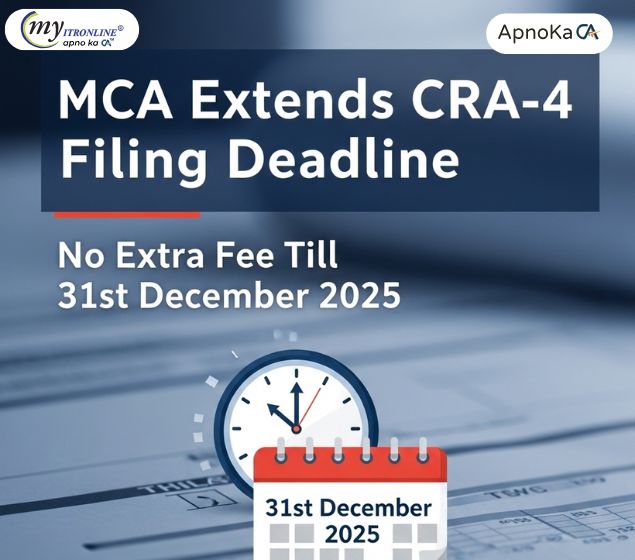
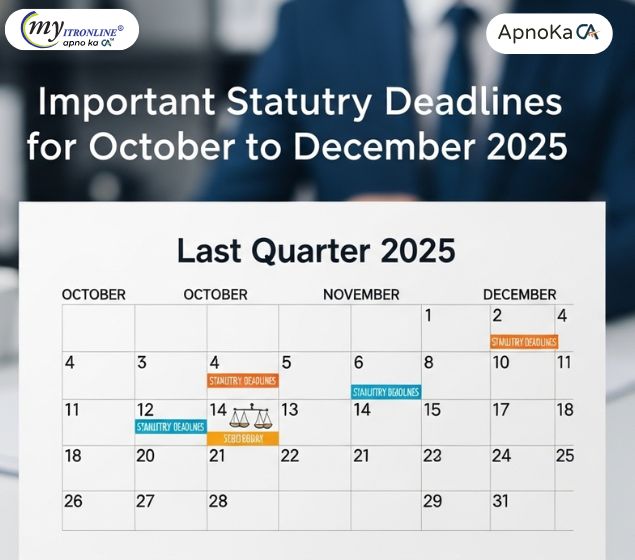
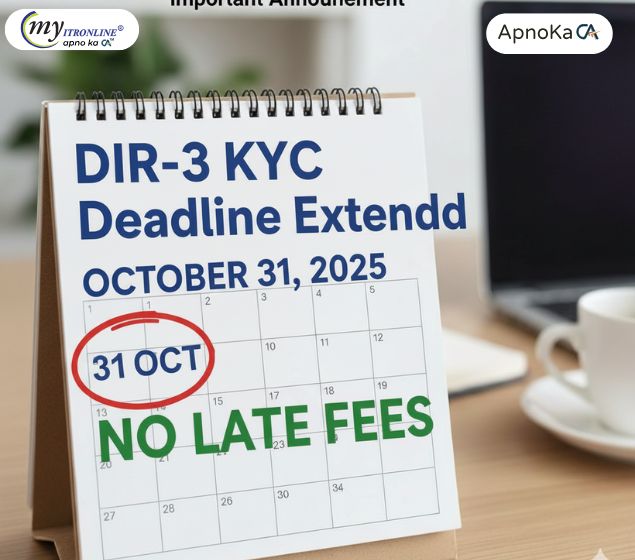
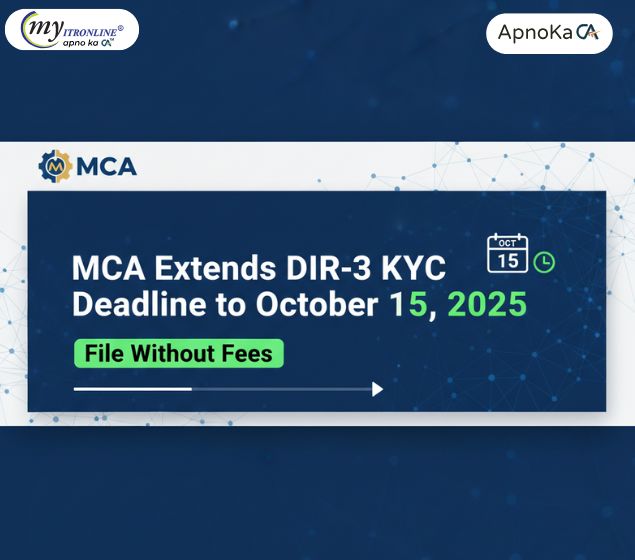


.jpg
)
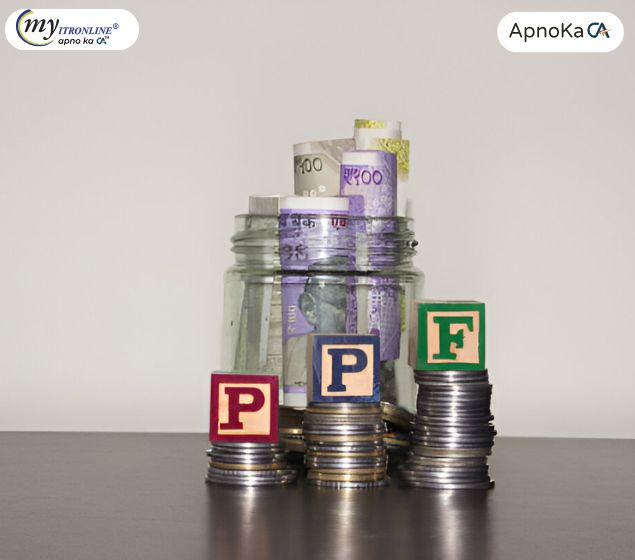
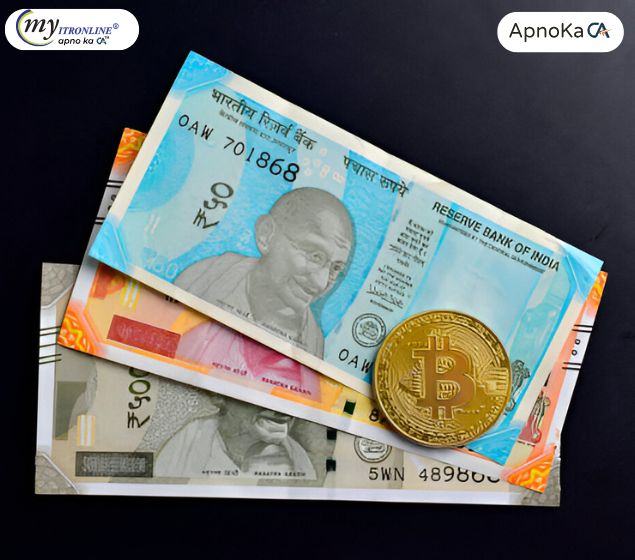
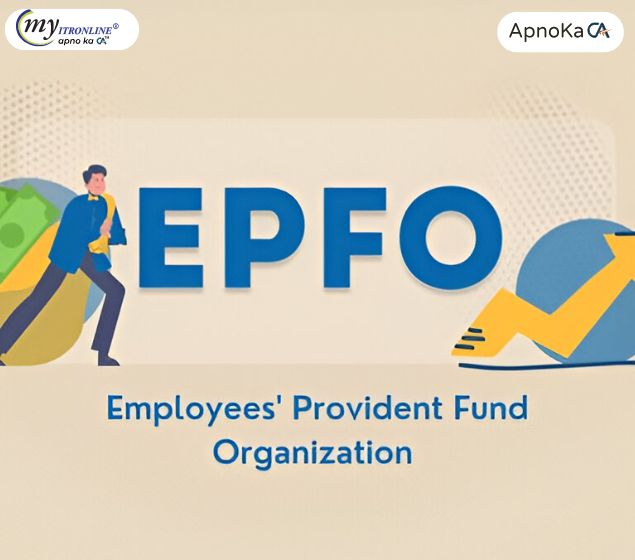
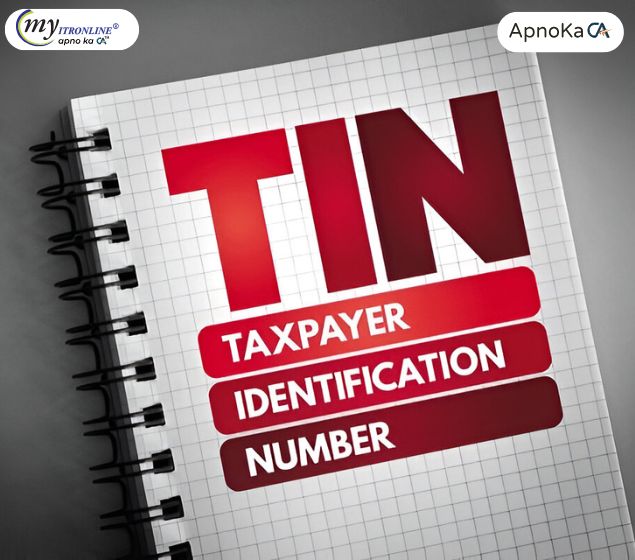
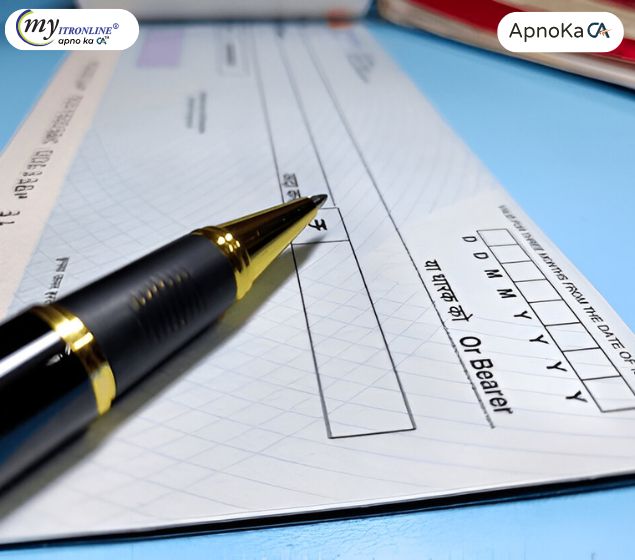
.jpg
)
.jpg
)
.jpg
)